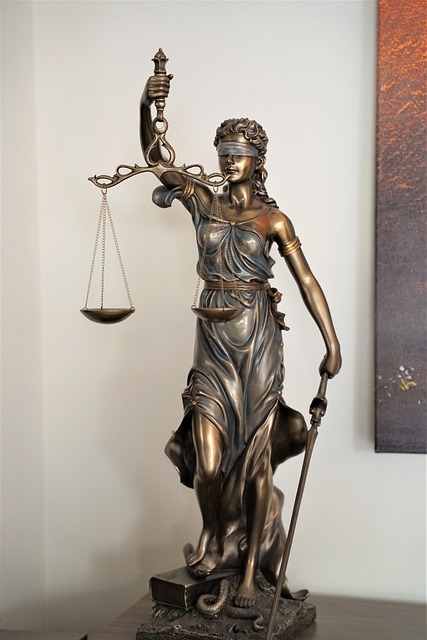Whistleblower Protection Lawsuits, pivotal for accountability and transparency, heavily rely on fair jury verdicts influenced by demographic factors like age, gender, and cultural backgrounds. Understanding these impacts is crucial for achieving just outcomes in complex cases like corporate fraud or public health violations. Diverse juries bring varied perspectives, enriching deliberations and ensuring balanced resolutions reflecting societal interests. Securing just compensation requires strategic communication to counter biases, build compelling narratives, and present strong evidence, with public interest appeals effective for a wide range of jury members. The impact of jury demographics on verdicts cannot be ignored, as evidenced by successful whistleblower lawsuits with landmark decisions protecting whistleblowers and deterring unethical behavior.
“Uncovering the Power of Whistleblower Protection Lawsuits: A Comprehensive Guide explores the intricate world of legal battles where individuals stand up against organizational wrongdoings. This article delves into the significance of whistleblower protection, particularly in understanding jury demographics and their impact on verdict outcomes. We analyze how diverse juries influence these cases, present strategic insights for successful claims, and offer real-world case studies highlighting trends. By examining the role of jury composition, we uncover valuable lessons on navigating Whistleblower Protection Lawsuits and the potential for transformative justice.”
- Understanding Whistleblower Protection Lawsuits: A Comprehensive Overview
- The Role of Jury Demographics in Legal Proceedings
- Impact of Diverse Juries on Whistleblower Cases
- Challenges and Strategies in Presenting Whistleblower Protection Claims
- Case Studies: Examining Real-World Outcomes and Trends
Understanding Whistleblower Protection Lawsuits: A Comprehensive Overview
Whistleblower Protection Lawsuits are legal actions taken by individuals who expose illegal or unethical activities within their respective businesses or organizations. These lawsuits play a pivotal role in maintaining accountability and ensuring transparency, serving as a deterrent for potential wrongdoers. When a whistleblower steps forward, they often face significant risks, including retaliation from employers, which can affect their professional and personal lives. Therefore, these protection laws are crucial in safeguarding individuals who bravely come forward to shed light on corporate fraud, environmental harm, or public health violations.
Understanding the impact of jury demographics on verdicts is essential in whistleblower cases. Jury trials provide a unique perspective as they represent the diverse views and values of the philanthropic and political communities. The composition of jurors can significantly influence the outcome, especially when dealing with complex legal issues. Research suggests that demographic factors, such as age, gender, and cultural backgrounds, may shape how individuals perceive evidence and witness testimonies, ultimately impacting their decisions. As a result, effective legal strategies in whistleblower protection lawsuits must consider these dynamics to ensure fair and just outcomes for all parties involved.
The Role of Jury Demographics in Legal Proceedings
The makeup of juries plays a significant role in the outcome of legal proceedings, particularly in high-stakes cases. Demographics such as age, gender, racial and ethnic backgrounds, education levels, and socioeconomic status can influence how jurors perceive and interpret evidence presented to them. This impact on verdicts is an essential factor to consider, especially when dealing with complex and sensitive matters like whistleblower protection lawsuits. For instance, a general criminal defense strategy might need to adapt its approach based on the jury’s average age, as younger jurors may be more inclined to side with whistleblowers’ claims of corporate misconduct due to their heightened awareness of social justice issues.
Understanding the impact of these demographics is crucial for achieving an unprecedented track record in legal representation. Attorneys must tailor their arguments and evidence presentation techniques to resonate with the jury’s collective mindset, ensuring that their clients receive fair trials and just verdicts. This demographic sensitivity is especially vital when navigating the complexities of whistleblower cases, where public trust, corporate ethics, and individual freedoms are at stake.
Impact of Diverse Juries on Whistleblower Cases
The composition of juries can significantly influence the outcome of whistleblower protection lawsuits, with diverse demographics potentially bringing unique perspectives to the table. When jury members come from varied backgrounds, including different ethnicities, genders, and socioeconomic groups, it broadens the range of experiences and views considered during deliberations. This diversity can lead to more nuanced interpretations of evidence and legal arguments, ensuring that corporate and individual clients alike are held accountable through fair and just processes.
Understanding the impact of jury demographics on verdicts is crucial throughout all stages of the investigative and enforcement process. It underscores the importance of inclusive practices in selecting juries, as it allows for a broader representation of the community. This, in turn, can foster a more balanced approach to resolving whistleblower claims, where the unique insights of each juror contribute to reaching decisions that reflect the values and interests of society at large, rather than favoring any respective business.
Challenges and Strategies in Presenting Whistleblower Protection Claims
Whistleblower protection lawsuits often face unique challenges, especially when navigating complex legal landscapes and securing just compensation for brave individuals who expose wrongdoing. One significant hurdle is understanding how jury demographics influence outcomes, as public perception plays a pivotal role in these cases. The impact of jury diversity cannot be understated, as it brings varied perspectives and experiences to the table, potentially shaping verdicts. Research suggests that juries with diverse backgrounds are more likely to consider alternative viewpoints, which can be crucial for protecting whistleblowers’ rights.
Strategizing for these cases involves careful preparation to counter potential biases and misperceptions. Attorneys must build compelling narratives, presenting strong evidence of the whistleblower’s intentions and the validity of their claims. By highlighting the public interest served by exposing misconduct, lawyers can appeal to a wide range of jury members. Additionally, employing effective communication tactics during trial, such as addressing misconceptions head-on, is vital to securing favorable outcomes and ensuring these individuals receive the justice they deserve, ultimately avoiding indictment or the complete dismissal of all charges.
Case Studies: Examining Real-World Outcomes and Trends
Whistleblower protection lawsuits have seen a surge in recent years, with case studies offering valuable insights into their real-world outcomes and trends. These legal battles often pit corporate and individual clients against one another, highlighting the complex dynamics at play when whistleblowers decide to come forward. By examining these cases, we can better understand how various factors, including the impact of jury demographics on verdicts, influence the outcome.
An unprecedented track record of successful lawsuits has emerged, with whistleblowers securing substantial rewards for exposing fraudulent activities and corporate misconduct. Throughout all stages of the investigative and enforcement process, from initial revelations to trial, these cases have demonstrated the power of transparency and accountability. The diverse jury demographics in many of these trials have played a significant role, as communities and individuals with varied experiences and perspectives have contributed to landmark decisions that protect whistleblowers and deter future misconduct.
Whistleblower protection lawsuits play a pivotal role in upholding ethical conduct within organizations. By examining the impact of jury demographics on verdicts, we gain valuable insights into ensuring fair legal proceedings for whistleblowers. The diversity of juries significantly influences the outcomes of whistleblower cases, highlighting the importance of inclusive practices in the justice system. Understanding these dynamics is crucial for navigating complex legal strategies and fostering a culture where whistleblowing is encouraged and protected. Through case studies and real-world trends, it’s evident that addressing jury demographics can enhance the effectiveness of whistleblower protection laws, ultimately leading to more just outcomes.






